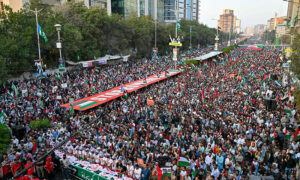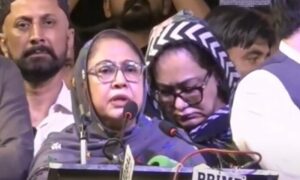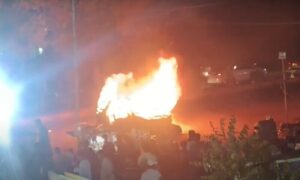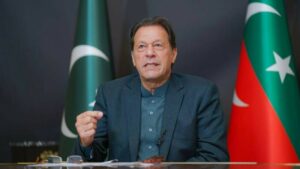ISLAMABAD:
General (retd) Faiz Hameed was considered one of the most powerful ISI chiefs in Pakistan’s history. Before becoming the head of the spy agency, he was DG-C in the ISI, one of the most influential positions within the intelligence service.
Hameed served as DG ISI from 2019 to 2021 and came into the global spotlight when he was filmed drinking tea in the lobby of a Kabul hotel shortly after the Taliban had taken over Afghanistan, following the pullout of the US and other Western forces in 2021.
Unlike other spymasters, Gen Faiz remained in the headlines as he never shied away from publicity.
He was considered close to former prime minister Imran Khan and his close proximity to the Pakistan Tehreek-e-Insaf (PTI) leader was believed to have been one of the major reasons for the civil-military tussle at the time.
Some observers believe that the arrest and subsequent court martial of Hameed is not good news for Khan as the former prime minister may be implicated in more cases.
It was speculated and widely reported that Imran wanted to appoint Hameed the next Army chief after General (retd) Qamar Javed Bajwa’s retirement in November of 2022.
Once tipped as a contender for the top role of Chief of Army Staff, Hameed took early retirement months after Khan lost power. He was one of the six generals whose names were forwarded by GHQ for consideration for the top military position in 2022.
The ISI chief is generally considered the second most powerful military officer in Pakistan after the head of the army.
Hameed’s tenure followed the abrupt removal of then-ISI chief and current Army chief, General Asim Munir, reportedly because he brought forward evidence alleging Khan’s wife Bushra Bibi and close aide Farah Gogi embroiled in corruption.
Khan, who was ousted from office through a vote of no-confidence in April of 2022, claimed that his removal was orchestrated by the military, which the military has denied.
He went on to wage a campaign of defiance against the military and his arrest in May of 2023 for graft sparked nationwide protests which turned violent and saw unprecedented anger directed at army installations.
It was met with a sweeping crackdown against his party, which went on to win the most seats in February’s general elections despite being forced to run as independent candidates.
WITH ADDITIONAL INPUT FROM AGENCIES











